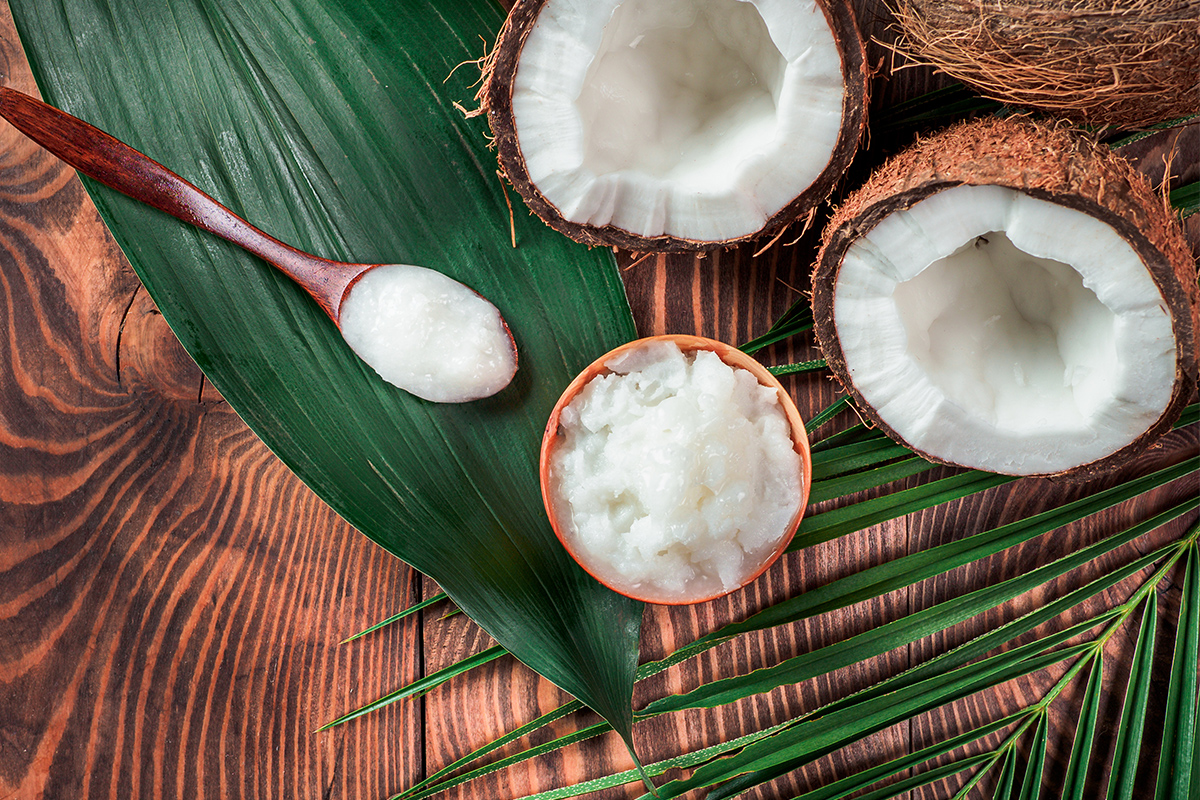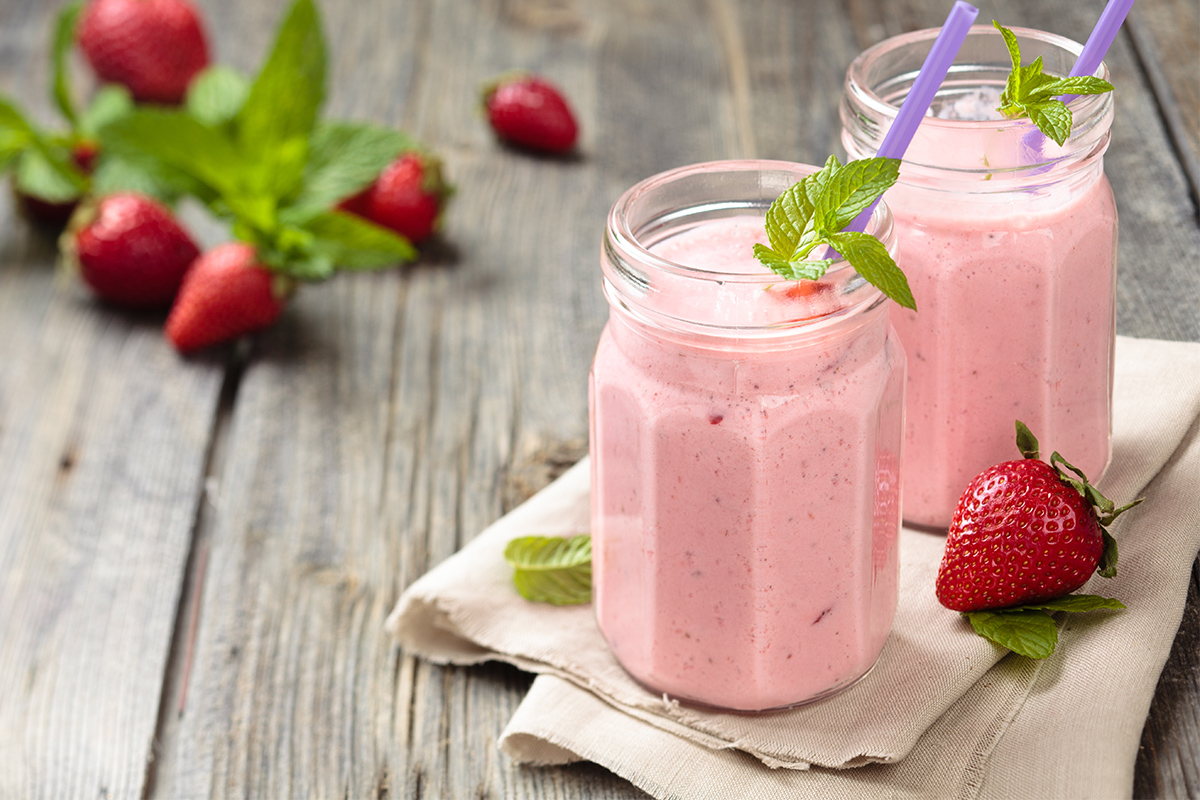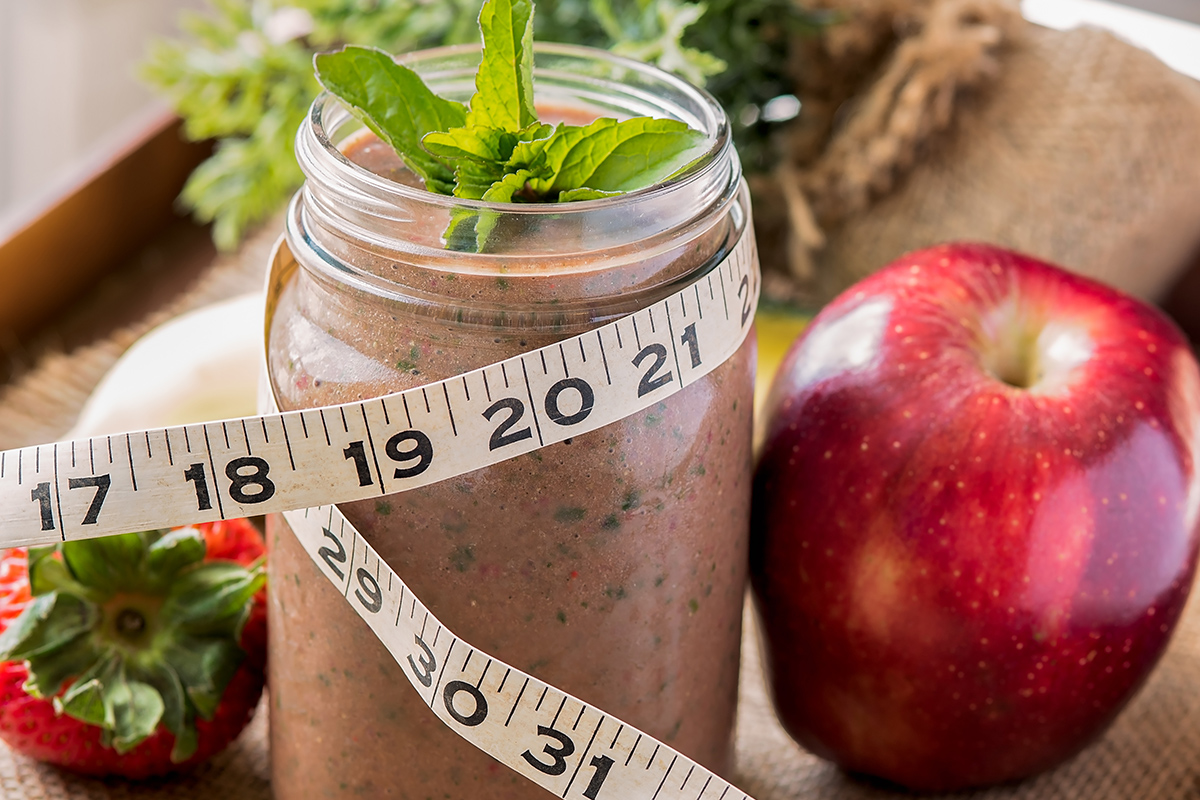Salt Grains for Muscle Gains?
Does liberally salting your food help you pump more iron in the gym? Registered Dietitian, Debbie James, investigates the claims!


Hello! I would really like to know what I can do to keep my hair from falling out. I seem to have had thinning hair that falls out easily for as long as I can remember. What is the best nutrient for hair regrowth, and how can I prevent it from falling out in the first place? Thank you!
-Melanie K.

There are several nutrients necessary for healthy hair, the fastest growing tissue in the body. What action to take for re–growing hair would depend on the cause of the hair loss. Rarely due to a nutritional deficiency, alopecia often results from stress, medications, hormonal changes, and certain medical conditions. Thinning of head hair is associated with genetics and aging. The American Academy of Dermatology recommends seeing a clinician to determine the cause of hair loss and offers tips on preventing loss.1
If a nutritional balance is to blame, the likely culprits are a deficiency of iron, zinc, or protein. Additionally, niacin deficiency, sudden weight loss, over supplementation, and essential fatty acid deficiency may be suspect.2 The best sources of problem nutrients include beef, pork, lamb, shellfish, fatty fish, poultry, eggs, beans/legumes, oatmeal and avocados. See our previous Healthy Living Blog article on targeting certain foods for hair growth.
Providing adequate essential nutrients will help stimulate hair follicles but focus on food first.3 Don’t supplement without first knowing that you need to. Toxicity of minerals and fat-soluble vitamins more readily occurs via supplements than from food. You can actually promote hair loss with too much vitamin A!
References:
1) “Hair Loss: Tips for Managing” https://www.aad.org/managing-tips
2) Guo EL, Katta R. Diet and hair loss: effects of nutrient deficiency and supplement use. Dermatology Practical & Conceptual. 2017;7(1):1–10. Published 2017 Jan 31. doi:10.5826/dpc.0701a01
3) Jessica Levings. Hair Growth Supplements. Today’s Dietitian. Sept, 2017; 19 (9): 40
– Debbie J., MS, RD
This article should not replace any exercise program or restrictions, any dietary supplements or restrictions, or any other medical recommendations from your primary care physician. Before starting any exercise program or diet, make sure it is approved by your doctor.
Some questions have been edited for length and/or clarity.
 Have a nutrition question? Our registered dietitian is ready to help!
Have a nutrition question? Our registered dietitian is ready to help!
Email nutrition@lafitness.com or submit your question below and it may be featured in an upcoming article!
Does liberally salting your food help you pump more iron in the gym? Registered Dietitian, Debbie James, investigates the claims!
Debbie James, RDN, helps answer a question about energizing snack options to pull athletes through the second half of a high energy workout.
Registered Dietitian, Debbie James, helps answer a reader’s question about a good nutrition guide for a healthy pregnancy.

Fat has long been regarded as the foe of the weight conscious, except for those on a ketogenic diet. The goal for keto diets is to consume enough fat to force the body into ketosis and use fat for fuel instead of carbohydrate (glucose). Can a supplement of a certain type of fat also promote a shift in body composition? Fingers point to MCT (medium chain triglyceride) oil as the magic bullet that can boost metabolism, burn fat and build muscle.
What a Triglyceride is: Most fats we eat are triglycerides which have three fatty acid chains (if you must know — one attached to each hydrocarbon of a glycerol backbone). Mainly we eat triglycerides with long fatty acid chains (12-18 carbons), which may be saturated or unsaturated. Short chain fatty acids (4 carbons), on the other hand, are predominantly produced by gut bacteria.
So, what exactly are MCTs? Medium chain fatty acids have 6-10 carbons in length. They are found in coconut (16%) and palm (8%) oils, and to a lesser extent in dairy products. When they are cleaved off and reassembled to glycerol in a lab — Voila! — a medium chain triglyceride (MCT) without long fatty acids is made. So isolated MCT isn’t found in nature but is man-made. MCT oils generally contain either caprylic acid (C8), capric acid (C10) or a combination of the two, and to a lesser extent, caproic acid.

MCTs are metabolized differently than the long chain triglycerides found in most foods. MCTs are digested more rapidly (and transported to liver for oxidation) than long chain triglycerides, which take longer to metabolize and get stored as fat in the process. Providing 10% fewer calories compared to other fats, MCT oil is a lactose-free, gluten-free, vegan, pareve rapid fuel. Weak evidence supports replacement of LCTs with MCTs for promoting weight loss while there’s insufficient research on other metabolic effects and Alzheimer’s disease.

Because it’s man-made and lacks long chain fatty acids found in natural foods, MCT oil does not provide essential fatty acids (linoleic an omega-6 fatty acid, linolenic an omega-3). Medium chain fatty acids are always saturated, a concern for cholesterol levels and heart health. Ingestion of large doses of MCT oil may cause significant gastrointestinal distress. As one major manufacturer indicates: “Use of MCT as part of a ketogenic diet requires medical supervision.” Supplementing can get costly with an average MCT oil price of $1 per fluid ounce, compared with coconut oil at 50¢ per fl. oz.
Doses of 5 to 48 grams per day (as much as 9 teaspoons) were shown in clinical studies to yield enhanced results. For best tolerance, start with 1 teaspoon (5 mL) 3 to 4 times a day. Slowly (over a week or more), increase to a maximum of 1 Tablespoon (15 mL) 3 to 4 times a day. Food products with MCTs will show “modified coconut and/or palm kernel oil (medium chain triglycerides)” in the ingredients list – check the Nutrition Facts panel for grams of saturated fat.

Don’t take MCT oil on an empty stomach. Like other oils, MCT oil may be mixed into beverages such as juice or milk, or into sauces, salad dressings, and other foods. Colorless, flavorless and odorless, MCT oil is easy to incorporate into dishes but won’t impart more taste. Because of its low smoke point, you shouldn’t cook with MCT oil in high heat. Wholesome fats for Keto diets include coconuts and unrefined coconut oil, avocados and avocado oil, nuts, nut and seed butters, flax seeds, hemp hearts, chia seeds, olives and cold pressed olive oil, cacao nibs, full fat Greek yogurt, fatty fish, whole eggs, butter, and cheese.
For a ketogenic diet that’s already based on an extremely high percentage of calories from fat, substituting MCT oil for other oils in cold food preparation may provide a slight body composition benefit. As an oral supplement, taking undiluted MCTs without food may not be tolerated. You’ll still need to incorporate healthy whole plant fats in your diet for essential fatty acids.
Sources


It’s a little awkward to talk about but I need some remedies for constipation. We all have it at some point but for me it seems ongoing! What can I do? I’ve heard that papaya enzymes can help. Thank you for your time.
– Andre F.

What goes in must come out! Even people on temporary liquid diets still create poop. For chronic constipation be sure to get checked by your physician to rule out any underlying medical cause. Home remedies for constipation include:
Drink adequate fluids – target 0.5 fluid ounces per pound of body weight minimum per day. Strains from both Lactobacillus and Bifidobacterium genuses are employed for constipation relief, as are Activia® yogurt and Yakult® drink. Consuming adequate fiber, both soluble and insoluble, helps to promote regularity.1
Aim for 25-30 grams total dietary fiber per day from vegetables, fruits, whole grains, legumes and nuts/seeds. Exercises that may benefit the gut include yoga, squats, lunges and aerobic workouts. Reducing stress may also help improve intestinal flow.
Enzymes such as in papaya and pineapples, help to break down amino acid strands thus promote efficient digestion of proteins. Theoretically digestive enzymes would reduce the amount of waste to your large intestines, but they’ve not been proven effective to relieve constipation.
Resources:
– Debbie J., MS, RD
This article should not replace any exercise program or restrictions, any dietary supplements or restrictions, or any other medical recommendations from your primary care physician. Before starting any exercise program or diet, make sure it is approved by your doctor.
Some questions have been edited for length and/or clarity.
 Have a nutrition question? Our registered dietitian is ready to help!
Have a nutrition question? Our registered dietitian is ready to help!
Email nutrition@lafitness.com or submit your question below and it may be featured in an upcoming article!
Does liberally salting your food help you pump more iron in the gym? Registered Dietitian, Debbie James, investigates the claims!
Debbie James, RDN, helps answer a question about energizing snack options to pull athletes through the second half of a high energy workout.
Registered Dietitian, Debbie James, helps answer a reader’s question about a good nutrition guide for a healthy pregnancy.


I have a question about gut health. How good are probiotics and is it safe to take Acidophilus every day? How does it help the body? Is it better than taking a laxative? Thanks!
– Myra

I count lots of questions, so we’ll tackle them one at a time!
1. Probiotics’ benefit: True probiotic microorganisms are very beneficial, provided that they are in adequate amounts of verified strains shown to have effect. That means certain probiotic sources/foods are good1, while others might be duds whose bacterial colonies simply don’t form significantly stable populations in the human gut2. The term “probiotic” is often misapplied to products.
Positive effects on health may include immune stimulation, prevention of infection, promotion of regularity, relief of inflammatory bowel disease, cancer suppression, and modulation of brain activity, promoting mental wellness2,3. See www.USProbioticGuide.com for a list of commercial products and the level of evidence for their probiotic strains’ application in certain conditions.
2. Acidophilus safety: Lactobacillus acidophilus is a type of bacteria found in your intestines and in several fermented foods such as yogurt, keifer, sauerkraut and tempeh. As a supplement, daily consumption is considered generally safe1,4, but may contribute to constipation4 and other digestive complaints, so monitor for side effects.
3. Acidophilus effectiveness: L. acidophilus supplementation may protect against traveler’s diarrhea, have anti-fungal activity, and prevent bacterial UTI and vaginal infections3,4. Those wishing to take this probiotic in supplement form should find one with at least one billion CFUs per serving.
References:
– Debbie J., MS, RD
This article should not replace any exercise program or restrictions, any dietary supplements or restrictions, or any other medical recommendations from your primary care physician. Before starting any exercise program or diet, make sure it is approved by your doctor.
Some questions have been edited for length and/or clarity.
 Have a nutrition question? Our registered dietitian is ready to help!
Have a nutrition question? Our registered dietitian is ready to help!
Email nutrition@lafitness.com or submit your question below and it may be featured in an upcoming article!
Does liberally salting your food help you pump more iron in the gym? Registered Dietitian, Debbie James, investigates the claims!
Debbie James, RDN, helps answer a question about energizing snack options to pull athletes through the second half of a high energy workout.
Registered Dietitian, Debbie James, helps answer a reader’s question about a good nutrition guide for a healthy pregnancy.


Hello, I have breakfast (almond milk, walnuts, pecans, almonds, banana and oats) and dinner (salad of tomato, onion, potatoes, pepper, cilantro, rice puffs). Can I replace my everyday lunch with meal replacement shakes? I work out in the gym 3 times a week and run twice a week. I have been in good shape but can’t get a 6-pack. I would like to get there in 3 months before my vacation. Thanks in advance for your help.
-Dean

You certainly can replace your lunch with a meal replacement shake, although I don’t know if that would help you with your goal. Dinner already sounds super light and you’ve not described your current lunch so it’s hard to tell what’s missing from your day. The items you described are all plant-based so I’ll stick with like foods in recommending quinoa, cabbage, broccoli, asparagus, berries, flax & chia seeds, spinach, lentils, and green tea for your mid-day meal. It’s best to chew your calories, allowing your digestive system to do its job over time, thus allowing a slower uptake of energy than from a shake.
Be sure your workouts include lots of ab-defining exercises as highlighted elsewhere on our Living Healthy Blog.
Resources:
– Debbie J., MS, RD
This article should not replace any exercise program or restrictions, any dietary supplements or restrictions, or any other medical recommendations from your primary care physician. Before starting any exercise program or diet, make sure it is approved by your doctor.
Some questions have been edited for length and/or clarity.
 Have a nutrition question? Our registered dietitian is ready to help!
Have a nutrition question? Our registered dietitian is ready to help!
Email nutrition@lafitness.com or submit your question below and it may be featured in an upcoming article!
Does liberally salting your food help you pump more iron in the gym? Registered Dietitian, Debbie James, investigates the claims!
Debbie James, RDN, helps answer a question about energizing snack options to pull athletes through the second half of a high energy workout.
Registered Dietitian, Debbie James, helps answer a reader’s question about a good nutrition guide for a healthy pregnancy.
Be the first to know about exclusive
content, deals and promotions